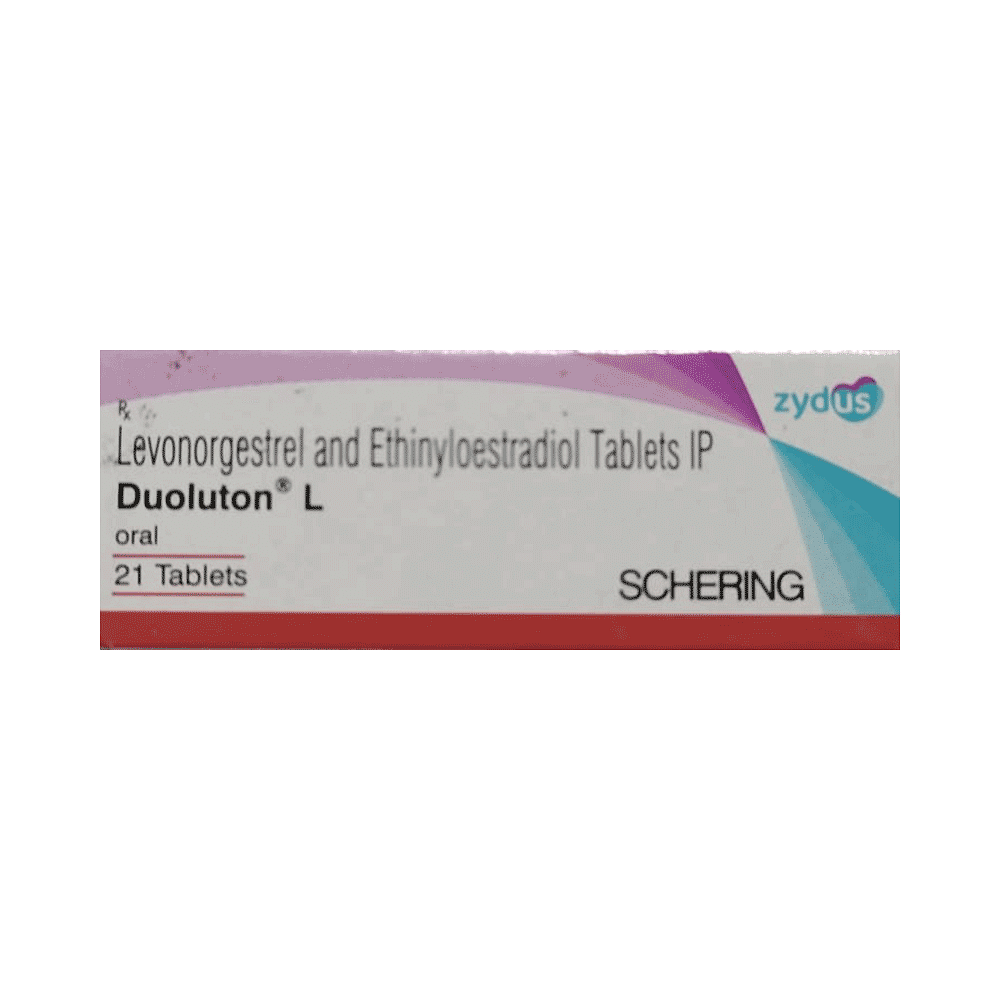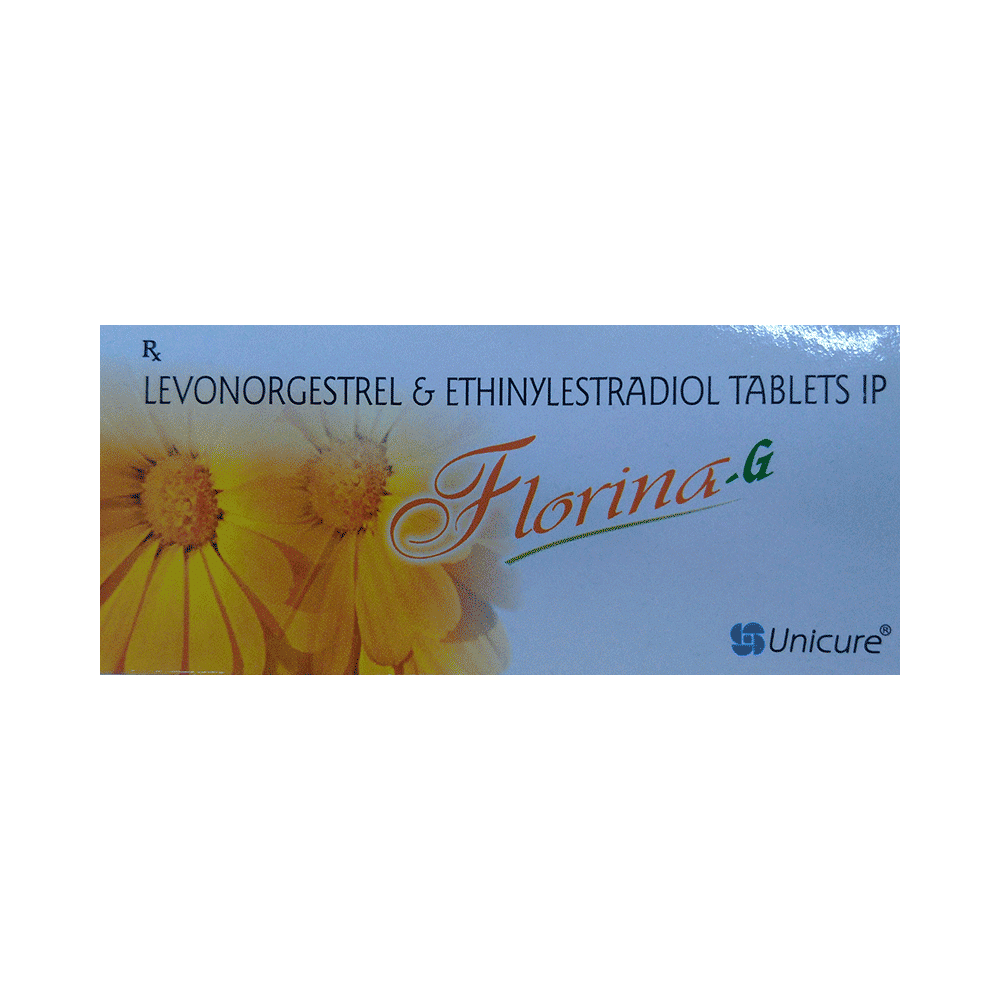
Dear Tablet
Manufacturer
Sanzyme Ltd
Salt Composition
Ethinyl Estradiol (0.05mg) + Levonorgestrel (0.25mg)
Key Information
Short Description
Dear Tablet is a medicine used for contraception (to prevent pregnancy) and in the treatment of irregular periods. It helps to prevent the release of the egg and its fertilization by the sperm.
Dosage Form
Tablet
Introduction
Dear Tablet can be taken with or without food, but take it at the same time to get the most benefit. It should be taken as per your doctor's advice. You will have to take the pill on day one of your menstrual cycle and continue taking it for a whole month. Once the pack gets over, start with a new one. If you experience vomiting within 4 hours of dose intake, take another tablet. In case you missed your dose and you are late by 12 hours in taking the missed dose, use a condom during intercourse for a period of 2 days. Nausea, headache, and breast pain are some commonly seen side effects of this medicine. If these bother you or appear serious, let your doctor know. There may be ways of reducing or preventing them. You might experience spotting or bleeding between menstrual periods or missed periods. Consult with your doctor if this occurs frequently or persists longer. Inform your doctor if you notice swelling and pain in your limbs, shortness of breath, chest pain, or changes in vision, as it may be a sign of a blood clot.
Directions for Use
Take this medicine in the dose and duration as advised by your doctor. Swallow it as a whole. Do not chew, crush or break it. Dear Tablet may be taken with or without food, but it is better to take it at a fixed time.
Safety Information
Side Effects
Nausea Headache Breast pain
Alcohol Warning
Caution is advised when consuming alcohol with Dear Tablet. Please consult your doctor.
Breastfeeding Warning
Dear Tablet is probably unsafe to use during breastfeeding. Limited human data suggests that the drug may pass into the breastmilk and harm the baby.
Pregnancy Warning
Dear Tablet is highly unsafe to use during pregnancy. Seek your doctor's advice as studies on pregnant women and animals have shown significant harmful effects to the developing baby.
How it works
Dear Tablet is a combined oral contraceptive pill. It works by preventing the release of egg (ovulation) and affecting sperm movement in the womb to prevent its union with the egg. It also changes the lining of the womb and renders it unsuitable for pregnancy.
Quick Tips
Take your pill at the same time every day to help you remember to take it. You may experience menstrual irregularities such as spotting or bleeding between menstrual periods or missed periods. Consult your doctor if this persists. Do not use Dear Tablet if you are obese, over 35, smoke, on prolonged bed rest or have a history of blood clots. Stop taking this medicine and inform your doctor immediately if you notice unexplained swelling and pain in your limbs, shortness of breath, chest pain or changes in vision. These could be symptoms of a blood clot in a vein.
Related Medicines

Duoluton L Tablet

Duoluton L Tablet

X-Out 21 Tablet

Gestbye L 0.05mg/0.25mg Tablet

Florina G 0.05mg/0.25mg Tablet

Evoral Plus 0.05mg/0.25mg Tablet

Levopauz 0.05mg/0.25mg Tablet
Frequently asked questions
What is Dear Tablet and what is it used for?
Dear Tablet is a combined oral contraceptive medication containing estrogen and progesterone. It is prescribed to prevent pregnancy.
What if I forget to take Dear Tablet?
If you miss a dose of Dear Tablet, take it as soon as possible, even if it means taking two tablets at once, and continue with the regular dosing schedule. However, missing multiple doses may not provide full protection against pregnancy. If this happens, start taking the missed tablet as soon as possible and use a barrier method of contraception (e.g., condoms) for at least seven days to prevent pregnancy. Frequent dose omissions could cause unexpected vaginal bleeding or spotting (blood stains). Consult your healthcare professional if you experience persistent issues.
How and in what dose should I take Dear Tablet?
Consult your doctor for the recommended dosage of Dear Tablet. Take it at the same time each day to ensure consistent medication levels throughout your body.
Are there any specific contraindications associated with the use of Dear Tablet?
Dear Tablet is not recommended for patients with known allergies to its components or excipients. It's also not advised for individuals with a history of high blood pressure, heart disease, diabetes mellitus, migraine headache, liver disease, tumors, uterine bleeding, breast cancer, deep vein thrombosis (DVT), and pulmonary embolism (blood clots).
Can Dear Tablet be taken by a patient who smokes?
Dear Tablet should not be taken by smokers. Smoking increases the risk of serious side effects like heart attack, blood clots, or stroke. The risk is higher in individuals with obesity or those aged over 35 years old and heavy smokers. Inform your doctor if you smoke before taking Dear Tablet.
What if I miss my regular menstrual periods while taking Dear Tablet?
Missing menstrual periods might indicate pregnancy. Some women experience light or absent periods when taking Dear Tablet, even if they are not pregnant. If you think you may be pregnant or have missed two consecutive periods, contact your healthcare provider.
Can Dear Tablet cause bleeding or spotting between the regular menstrual periods?
Dear Tablet can cause some unexpected bleeding or spotting during the first three months of use. It's important to note that this may occur even if you are consistently taking your medication. If you experience excessive bleeding, consult your doctor.
What if I vomit after taking Dear Tablet?
If you feel sick and vomit within three to four hours of taking a Dear Tablet tablet, this is considered a missed dose. Take another dose immediately when you feel better.
What are the common side effects of taking Dear Tablet?
Possible side effects include irregular vaginal bleeding, headaches, nausea (feeling sick), acne, depression, and breast pain. These side effects are usually temporary but should be reported to your doctor if they persist.


